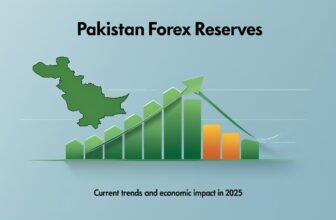
Get an inside look into Forex trading with our blog. Explore the fundamental question: “What is an ECN account?” Unravel the intricacies of this electronic marvel, unlocking transparency and efficiency in the dynamic world of currency exchange. Welcome to where traders connect directly to the financial pulse, navigating the nuances of ECN accounts for a profound trading experience.
An ECN account, which stands for Electronic Communications Network, is a type of forex trading account that provides direct access to the market. It is offered by ECN brokers, who act as financial intermediaries and use electronic communication networks to connect clients to other participants in equity and currency markets. ECN brokers consolidate price quotations from multiple market participants, allowing them to offer their clients tighter bid/ask spreads.
Key Takeaways
- An ECN account in forex trading provides direct access to the market through electronic communication networks.
- ECN brokers consolidate price quotations from multiple market participants, offering tighter bid/ask spreads.
- ECN accounts provide transparency, faster execution speeds, and the ability to place pending orders close to the market price.
- ECN accounts have higher fees and commissions compared to non-ECN systems.
- Traders should consider factors such as trading platform, broker reputation, and regulatory compliance when choosing an ECN account.
What Is ECN Account in Forex
Unlike traditional brokers, ECN brokers do not trade against their clients and charge a fixed commission per transaction. This ensures transparency in the trading process and eliminates any conflict of interest between the broker and the trader.
ECN accounts are gaining popularity among forex traders due to their numerous advantages. Let’s explore some of these benefits and understand how ECN accounts differ from other types of trading accounts.
Understanding ECN Trading in Forex: A Comprehensive Guide
In forex trading, Electronic Communication Network (ECN) trading has emerged as a game-changer. Traders seeking a transparent and efficient trading experience often turn to ECN brokers. Let’s delve into the intricacies of ECN trading, demystifying its processes and benefits.
What is ECN Trading?
Connecting Traders to Liquidity Providers
ECN, an acronym for Electronic Communication Network, serves as the automated backbone of trading. It links individual traders to liquidity providers, including banks, brokerages, and fellow traders. This inclusive approach ensures that traders, regardless of their account type or balance, gain access to financial markets.
No Dealing Desk (NDD) Brokerage
Typically, an ECN broker operates as a No Dealing Desk (NDD) broker, eliminating the traditional Dealing Desk process. This enables direct execution between parties, enhancing efficiency and transparency in trade execution.
Transparent and No Position Holding
Crucially, an ECN broker refrains from holding positions in the market, safeguarding traders from potential conflicts of interest. The absence of a middleman ensures that the broker never takes a position against the trader.
The ECN System: A Closer Look at Electronic Communication Network Trading
In forex, understanding the Electronic Communication Network (ECN) system is pivotal for traders seeking transparency and efficiency in their transactions.
Origin and Evolution of ECN
The ECN system traces its roots back to 1969 with the inception of Instinet, the pioneer in electronic trading. Fast forward to 1999, and Matchbook FX becomes the first online currency trading ECN. This evolution signifies a shift towards automated trading networks, revolutionising how traders interact with the market.
Variable Spreads and Commission Model
Unlike traditional brokers, ECN brokers employ a commission-based model, charging traders for their services. For instance, if a trader initiates a buy order at 1.3000 and another trader simultaneously places a sell order at the same price, the ECN system automatically matches these orders, ensuring seamless execution at the best available price. The broker then charges a fixed commission for facilitating this transaction.
The Role of Interbank Market Access
In the ECN system, traders gain direct access to the interbank market, interacting with top-tier banks. This access ensures that traders receive authentic market prices without artificial markups. Imagine it as a digital marketplace where buyers and sellers converge, creating a dynamic environment for efficient trade execution.
Raw ECN: Unfiltered Market Access
Think of Raw ECN as the purest form of ECN. Brokers offering Raw ECN accounts provide traders with unfiltered access to liquidity in the interbank market. This unaltered connection distinguishes Raw ECN from Straight Through Processing (STP) brokers, underlining the transparency and authenticity of the ECN trading experience.
Anonymity and Privacy in ECN Trading
One of the notable advantages of the ECN system is the level of anonymity it offers. Large transactions can be executed discreetly without revealing the trader’s identity. For instance, if an investor is looking to make a substantial currency purchase, the ECN system ensures privacy by matching the order with the best available sell order without disclosing specific details.
Real-Time Market Quotes and Speedy Executions
The ECN system operates with cutting-edge technology, resulting in real-time market quotes and swift order executions. Picture a bustling marketplace where quotes from multiple market participants are consolidated, providing traders with the tightest bid/ask spreads available. This automation enhances the overall efficiency of the trading process.
MT4 ECN Accounts: Navigating the ECN Hub
For traders seeking a seamless entry into the ECN system, MT4 ECN accounts serve as a gateway. Utilising the MetaTrader 4 trading platform, these accounts allow traders to tap into the ECN hub where major market players act as liquidity sources. This integration simplifies the trading experience while maintaining the core principles of ECN trading.
In essence, decoding the ECN system unveils a realm of transparency, efficiency, and direct market access. As the forex market continues to evolve, embracing the nuances of the ECN system becomes paramount for traders navigating the complexities of modern-day trading.
he Transparency of ECN Accounts: Direct Forex Trading
In the context of forex trading, ECN (Electronic Communication Network) accounts stand as the epitome of transparency, offering traders unparalleled insight and direct access to the financial markets.
Direct Access to Interbank Market: Unveiling True Prices
ECN accounts provide traders with a direct link to the interbank market, connecting them with top-tier banks and liquidity providers. This direct access ensures that traders receive authentic and unaltered market prices. Unlike traditional brokers, ECN brokers do not manipulate spreads artificially. Imagine having a backstage pass to the financial stage, where the true performance unfolds without hidden scripts.
Raw ECN: A Glimpse into Unfiltered Market Dynamics
Raw ECN accounts take transparency a step further by granting traders unfiltered access to liquidity in the interbank market. Picture the market as an open book, where traders can read the genuine underlying prices without any interference or markup from the broker. This unaltered connection sets Raw ECN accounts apart, reinforcing the commitment to providing traders with the most authentic trading experience.
Privacy and Anonymity in ECN Trading
While transparency is the hallmark of ECN accounts, they also offer a unique blend of privacy and anonymity. Large transactions can be executed without revealing specific details, appealing to traders seeking discretion. For instance, a trader initiating a significant order can do so without the transaction details being disclosed to the market. This layer of privacy adds another dimension to the transparency of ECN accounts.
Real-Time Market Quotes and Swift Executions
The efficiency of ECN accounts is accentuated by the use of sophisticated technology, resulting in real-time market quotes and rapid order executions. Imagine being in a live auction where bids and asks are matched seamlessly, ensuring traders get the best available prices at that precise moment. This automation not only enhances transparency but also contributes to the overall speed and responsiveness of the trading process.
Marketplace Dynamics: Trading with Peers
In the ECN account ecosystem, traders essentially participate in a marketplace where they can interact with each other. This peer-to-peer trading dynamic allows for competitive pricing and ensures that traders get the most favourable offers at any given moment. Visualise it as a bustling market square where traders, both large and small, converge to engage in mutually beneficial transactions.
In conclusion, ECN accounts emerge as the pinnacle of transparency in the forex trading landscape. The direct access to the interbank market, unfiltered market dynamics, privacy features, and real-time execution contribute to a trading environment where transparency is not just a buzzword but a fundamental principle. As traders navigate the complexities of the financial markets, ECN accounts stand as a beacon of clarity, guiding them towards a more transparent and authentic trading experience.
Advantages of ECN Trading
Privacy and Anonymity
ECN trading offers a level of anonymity, particularly appealing to investors executing larger transactions. Traders can operate discreetly, shielded from wider spreads commonly associated with traditional brokers.
Efficiency and Market Depth
The highly automated ECN trading process, facilitated by advanced technology, results in real-time market quotes and speedy executions. The marketplace for broker clients promotes tighter spreads and greater depth in market pricing.
MT4 ECN Accounts: A Gateway to ECN Trading
For those seeking to engage in ECN trading, MT4 ECN accounts serve as a bridge. Utilising the MetaTrader 4 trading platform, traders gain access to ECN trading while enjoying the benefits of efficient order execution.
Navigating the ECN Landscape: Tips and Considerations
Commission-Based vs. Spread-Based Models
ECN brokers operate on a commission-based model, providing traders with tighter spreads. Understanding the trade-off between spreads and commissions is essential for informed decision-making.
Risk Management in ECN Trading
While ECN accounts offer tighter spreads and lower overall costs in liquid market conditions, traders must be mindful of liquidity risks. Exiting positions may pose challenges in illiquid markets, necessitating strategic risk management.
In Conclusion: Unleashing the Potential of ECN Trading
In summary, ECN trading transforms the forex landscape, offering a direct link between traders and liquidity providers. As the forex market continues to evolve, embracing the transparency and efficiency of ECN trading becomes paramount for traders seeking optimal results.
Note: The forex market, with a daily trading volume exceeding $5 trillion, stands as the world’s largest accessible market. ECN trading, with its emphasis on transparency and efficiency, is a key player in this expansive financial arena.
Advantages of ECN Accounts
ECN accounts offer several advantages for forex traders. Firstly, they provide transparency and deep liquidity by giving traders direct access to the market. This means that traders can see real-time market quotes and trade at the best available prices.
Additionally, ECN accounts typically have tighter spreads compared to traditional accounts, as they match orders from traders with the best available buy and sell prices. This can result in cost savings for traders, as tighter spreads mean lower trading costs.
ECN accounts also offer faster execution speeds, allowing traders to take advantage of market opportunities more quickly. This can be particularly beneficial for short-term traders or those who engage in high-frequency trading.
Furthermore, ECN accounts provide the flexibility to place pending orders as close to the market price as possible. This is advantageous for traders who employ specific entry and exit strategies.
ECN accounts enhance trading transparency, offer tighter spreads, faster execution speeds, and the flexibility to place pending orders. This can result in cost savings and improved trading efficiency.
It is important to note that ECN accounts may have higher fees and commissions compared to non-ECN systems. The direct access to liquidity providers and the added benefit of transparency and tight spreads come at a cost. Traders should carefully consider the fees and commissions associated with ECN accounts and weigh them against the potential benefits.
| Advantages of ECN Accounts | Disadvantages of ECN Accounts |
|---|---|
| Transparency | Higher fees and commissions |
| Deep liquidity | Limited liquidity during market volatility |
| Tighter spreads | |
| Faster execution speeds | |
| Flexibility for pending orders |
ECN vs. STP: Understanding the Difference
When comparing ECN accounts to STP (Straight Through Processing) accounts, there are some key differences to consider. Both ECN and STP accounts provide direct access to the market, but the main distinction lies in their execution methods.
ECN accounts match and execute orders without placing premiums on the raw spread, while STP accounts route orders directly to liquidity providers. Additionally, ECN accounts often charge fixed commissions per transaction, whereas STP accounts may have variable spreads.
It is important for traders to understand these differences and choose the account type that aligns with their trading strategy and preferences.
Choosing the Right ECN Account
When it comes to selecting an ECN account, traders should consider several factors to ensure a seamless forex trading experience. Here are some key points to keep in mind:
Evaluating the Trading Platform
First and foremost, traders should carefully evaluate the trading platform offered by the broker. Popular platforms for ECN trading include MetaTrader 4 (MT4) and MetaTrader 5 (MT5), known for their advanced charting tools and efficient order execution capabilities.
Comparing Different ECN Brokers
Next, traders should compare the offerings of different ECN brokers to find the ideal fit for their needs. It is essential to consider trading conditions such as low spreads, minimal slippage, and reliable order execution. By comparing various brokers, traders can identify the one that provides the most competitive trading environment.
Assessing Reputation and Regulatory Compliance
Another crucial aspect when choosing an ECN account is assessing the broker’s reputation and regulatory compliance. Traders should read reviews and gather information about the broker’s track record, ensuring they are partnering with a trustworthy and regulated entity. It is also important to consider factors such as customer support, deposit and withdrawal options, and the overall trading experience provided by the broker.
By taking these factors into account, traders can make an informed decision and choose the best ECN account for their trading requirements.
Pros and Cons of ECN Accounts
ECN accounts offer traders a range of benefits, but it’s important to also consider the potential disadvantages. Let’s explore both sides of the coin.
Advantages of ECN Accounts:
- Transparency and Fair Pricing: ECN brokers provide traders with real-time market quotes, allowing them to see and trade at the best available prices. This transparency ensures fair pricing without the interference of a dealing desk.
- Access to Deep Liquidity: With an ECN account, traders have direct access to a vast network of liquidity providers, including banks and financial institutions. This access to deep liquidity increases the chances of executing trades at favorable prices.
- Faster Execution Speeds: ECN accounts typically offer lightning-fast trade execution. Orders are processed quickly and efficiently, reducing the risk of slippage and ensuring traders can capitalise on market opportunities without delay.
Disadvantages of ECN Accounts:
- Higher Fees and Commissions: One potential downside of ECN accounts is that they often come with higher fees and commissions compared to non-ECN systems. Traders should consider their trading volume and frequency to assess whether the benefits outweigh the costs.
- Execution Slippage: During periods of high market volatility, there may be instances of execution slippage on ECN accounts. This means that the trade may be executed at a different price than anticipated, potentially resulting in less favorable outcomes.
- Limited Liquidity: While ECN accounts offer access to deep liquidity in most market conditions, extreme market volatility can lead to limited liquidity. This can result in wider spreads and reduced trading opportunities.
Traders interested in opening an ECN account should carefully weigh the advantages and disadvantages. It’s crucial to consider individual trading priorities, risk tolerance, and available capital before making a decision.
How ECN Works
An Electronic Communication Network (ECN) facilitates the connection between liquidity providers, such as banks, and forex traders through a sophisticated electronic communication network. This system allows for direct access to the market and ensures transparency and fair pricing.
Liquidity providers, like banks, submit buy and sell orders to the ECN server. Forex brokers then access the server and transmit the market quotes to their clients’ trading platforms. Traders can review these real-time prices and select the transactions they wish to proceed with based on their analysis and trading strategy.
Once a trader has made their decision, the ECN account matches and broadcasts the client’s request to the server. The system then contrasts the client’s request against numerous liquidity providers, ensuring competitive pricing and execution. This comprehensive process guarantees that traders receive the best available prices in the market and minimises the potential for price manipulation.
By connecting traders directly with liquidity providers and utilising advanced technology, ECN accounts offer transparency, faster execution speeds, and the opportunity for tighter spreads. Traders can feel confident knowing that their trades are being executed in a fair and efficient manner.
Understanding ECN Trading and STP
ECN trading, often compared to STP trading (Straight Through Processing), offers forex traders direct access to the market. While both ECN and STP accounts provide this access, there are notable differences in their features.
ECN trading is known for its tighter spreads, faster execution speeds, and greater depth in market pricing. Traders benefit from the ability to access real-time market quotes and trade at the best available prices. This transparency and enhanced execution speed can significantly improve trading outcomes.
On the other hand, STP trading may offer variable spreads and reliable trade execution. This option suits traders who value consistency and dependability in their trade executions. STP accounts route traders’ orders directly to liquidity providers, ensuring quick and efficient order fulfillment.
When choosing between ECN and STP accounts, traders should consider their trading strategies and preferences. If they prioritise tighter spreads and faster execution, ECN trading may be the preferred choice. However, if consistency and reliability are more important, an STP account may be a better fit.
To make an informed decision, traders should compare the spreads and other features offered by different ECN brokers. Evaluating factors like order execution, trading platform features, and overall trading conditions can help traders find the best fit for their needs.
Conclusion
In conclusion, an ECN account in forex trading provides traders with direct access to the market and offers several advantages. Traders can enjoy the transparency and fair pricing of ECN brokers, as they have real-time access to market quotes and can trade at the best available prices. The tight spreads offered by ECN accounts contribute to cost-efficiency, allowing traders to enjoy better trading conditions. Additionally, the faster execution speeds of ECN accounts enable traders to execute their trades quickly and take advantage of market opportunities.
However, it is important for traders to be aware of the potential drawbacks of ECN accounts. Higher fees and commissions may be associated with ECN trading compared to non-ECN systems. Furthermore, during volatile market conditions, liquidity may be limited, which could impact order execution. Traders should carefully consider these factors and assess their trading needs and preferences when choosing an ECN account.
When selecting the best ECN broker and account, traders should evaluate the trading platforms offered, compare different brokers, and analyse factors such as spreads, order execution, and regulatory compliance. It is important to choose a broker that provides a reliable and user-friendly trading platform, competitive trading conditions, and excellent customer support. By making an informed decision, traders can optimise their forex trading experience with the benefits offered by ECN accounts.
FAQ
An ECN account, which stands for Electronic Communications Network, is a type of forex trading account that provides direct access to the market. It is offered by ECN brokers, who act as financial intermediaries and use electronic communication networks to connect clients to other participants in equity and currency markets.
ECN accounts offer several advantages for forex traders. They provide transparency and deep liquidity by giving traders direct access to the market. ECN accounts typically have tighter spreads compared to traditional accounts, offer faster execution speeds, and the flexibility to place pending orders as close to the market price as possible.
ECN accounts match and execute orders without placing premiums on the raw spread, while STP accounts route orders directly to liquidity providers. Additionally, ECN accounts often charge fixed commissions per transaction, whereas STP accounts may have variable spreads.
When choosing an ECN account, traders should evaluate the trading platform offered by the broker, compare different ECN brokers based on factors like trading conditions and reputation, and assess the broker’s regulatory compliance.
The advantages of ECN accounts include transparency, fair pricing, access to deep liquidity, and faster execution speeds. However, they may come with higher fees and commissions, as well as the risk of execution slippage during volatile market conditions.
An ECN works by connecting liquidity providers, such as banks, with traders through an electronic communication network. Liquidity providers submit buy and sell orders to the ECN server, which is then accessed by forex brokers who transmit the market quotes to their clients’ trading platforms.
ECN trading typically offers tighter spreads, faster execution speeds, and greater depth in market pricing compared to STP trading. Traders should consider their trading strategy and preferences when choosing between ECN and STP accounts.
To choose the best ECN broker, traders should compare the spreads, order execution, and other features offered by different brokers. It is also important to consider factors like customer support, deposit and withdrawal options, and overall trading experience.
















